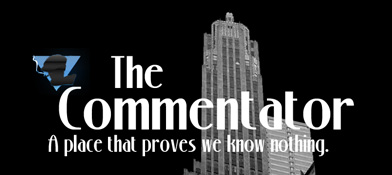
It's hard to make a case against Abraham Lincoln being America's greatest President. His speeches alone were and are something to behold.
Over the next little while I'll be posting excerpts from his greatest speeches as well as links to their entire texts.
The following was one his earlier speeches: The Perpetuation of Our Political Institutions. Barely making it as an attorney he spoke at the Young Men's Lyceum debating society in passionate defense of the rule of law in 1838 following the rise of violence against black slaves and their sympathizers:
"I know the American People are much attached to their Government;—I know they would suffer much for its sake;—I know they would endure evils long and patiently, before they would ever think of exchanging it for another. Yet, notwithstanding all this, if the laws be continually despised and disregarded, if their rights to be secure in their persons and property, are held by no better tenure than the caprice of a mob, the alienation of their affections from the Government is the natural consequence; and to that, sooner or later, it must come.
Here then, is one point at which danger may be expected.
The question recurs "how shall we fortify against it?" The answer is simple. Let every American, every lover of liberty, every well wisher to his posterity, swear by the blood of the Revolution, never to violate in the least particular, the laws of the country; and never to tolerate their violation by others. As the patriots of seventy-six did to the support of the Declaration of Independence, so to the support of the Constitution and Laws, let every American pledge his life, his property, and his sacred honor;—let every man remember that to violate the law, is to trample on the blood of his father, and to tear the character of his own, and his children’s liberty. Let reverence for the laws, be breathed by every American mother, to the lisping babe, that prattles on her lap—let it be taught in schools, in seminaries, and in colleges;—let it be written in Primmers, spelling books, and in Almanacs;—let it be preached from the pulpit, proclaimed in legislative halls, and enforced in courts of justice. And, in short, let it become the political religion of the nation; and let the old and the young, the rich and the poor, the grave and the gay, of all sexes and tongues, and colors and conditions, sacrifice unceasingly upon its altars."
Questions: Did Lincoln aid in hastening the growth of American government? If so, was his idea of what the role of government was different than our idea of it?Lincoln concludes:
"...They were the pillars of the temple of liberty; and now, that they have crumbled away, that temple must fall, unless we, their descendants, supply their places with other pillars, hewn from the solid quarry of sober reason. Passion has helped us; but can do so no more. It will in future be our enemy. Reason, cold, calculating, unimpassioned reason, must furnish all the materials for our future support and defence. Let those materials be moulded into general intelligence, sound morality and, in particular, a reverence for the constitution and laws; and, that we improved to the last; that we remained free to the last; that we revered his name to the last; that, during his long sleep, we permitted no hostile foot to pass over or desecrate his resting place; shall be that which to learn the last trump shall awaken our WASHINGTON.
Upon these let the proud fabric of freedom rest, as the rock of its basis; and as truly as has been said of the only greater institution, " the gates of hell shall not prevail against it."
It's interesting to note back in the 19th century Americans were worried about the state of the Republic.

No comments:
Post a Comment
Mysterious and anonymous comments as well as those laced with cyanide and ad hominen attacks will be deleted. Thank you for your attention, chumps.